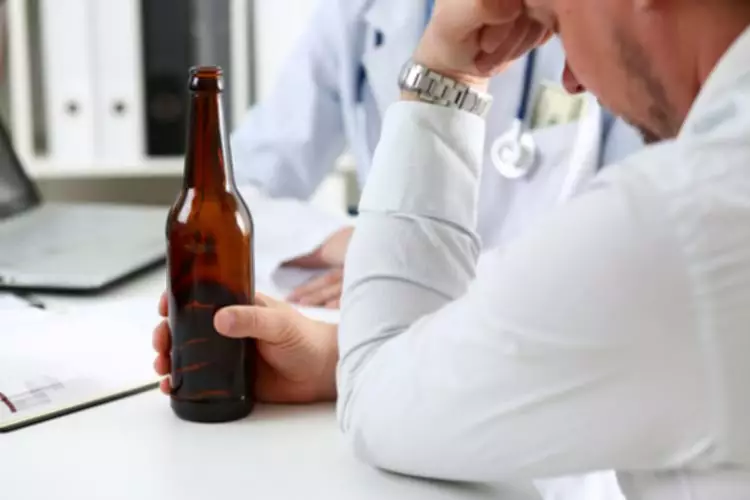How To Naturally Flush Alcohol Out Of Your System

This can increase your BAC significantly if you don’t replenish your body’s supply with a few sips of water as you drink. Normally, alcohol is consumed orally, where it goes into the stomach and is then absorbed as it moves into the small intestine. Afterwards, it moves into the bloodstream, where it stays until it’s filtered out by the liver. But, your urine will still show traces of alcohol for up to 80 hours.
What Is a Hangover and What Are the Symptoms?
And above all, limiting your alcohol consumption in general is the best way to avoid dehydration. Alcohol is a depressant that causes lots of changes in our bodies and behaviors. Since alcohol isn’t metabolized or digested in the same way as food, it has to be released differently. Instead of going into the digestive tract, alcohol goes through the bloodstream. This means that there are toxins throughout your entire system that need to be cleared out.
Done With Alcohol? Here’s How To Stop Drinking
You can, however, take tips and suggestions on how you can make the experience a little easier. Ninety percent of the time, the alcohol goes through the liver, and only around 10% of it gets out through sweat and urine. When your BAC reaches this point, you are at the highest risk of losing consciousness, alcohol overdose, and death. Alcohol places significant strain on the kidneys, especially if you drink too much or too often. Alcohol damages the kidneys and causes them to be less efficient at filtering blood.

How much water should you drink each day?
Mindful drinking can have a significant impact on reducing alcohol consumption and promoting a healthier relationship with alcohol. Take this quiz to learn how to be more mindful how much water to flush out alcohol with your drinking habits. Alcohol metabolism rates indeed vary, and the liver’s ability to process alcohol at a rate of one standard drink per hour is a general guideline.

Moderate Impairment (0.06–0.15% BAC)

Of course, the amount of water you require will also depend on other factors, including your age, weight, activity level, kidney function, and degree of dehydration. Opting for the right foods and beverages can play a role in supporting your body’s natural detoxification process after alcohol consumption. Did you struggle to get through a glass, or did you carry around a Stanley cup all day downing it a few times over? Much of the US is still suffering through dangerous heat waves and dealing with temperatures near or above 100 degrees Fahrenheit. That kind of extreme heat can lead to particularly risky health conditions, like irregular heart rates and spikes in blood pressure.
When you increase your water intake, the brain returns to its normal volume, relieving your dehydration headache without medication intervention. Robert is our health care professional reviewer of this website. He has a nursing and business/technology degrees from The Johns Hopkins University. Our approach combines medication-assisted treatment with personalized coaching to provide comprehensive support throughout your journey. To take the first step towards a healthier, alcohol-free life, schedule an appointment with us today or give us a call. Our dedicated team members are ready to assist you on your path to recovery.
- How you feel when you stop drinking is largely based on how often and how heavily you drink.
- The ethyl glucuronide (EtG) test is widely used to detect the presence in the urine of ethyl glucuronide.
- The Centers for Disease Control and Prevention (CDC) recommends that adults get at least seven hours of sleep per night.
- Mark Halsey is a licensed therapist, founder, and chief editor of Clean Break Recovery.
- That’s why people who attend alcohol rehab often receive nutritional support during recovery.
Alcohol’s impact on your body begins with the first sip, however long-term use of alcohol can take its toll on your body. A glass of wine a day isn’t going to do serious damage to your health, however, if it becomes a habit and you have a hard time stopping after one glass, the long-term effects begin to add up. The severity of the short-term effects of alcohol depends on how much you’ve had to drink. For example, if two people each have blood alcohol levels of 20 mg/dL, the alcohol will metabolize in about an hour in each person, but their BAC can be very different.
- This includes beer, wine, and liquor, as well as products that contain alcohol such as rubbing alcohol and vanilla extract.
- This adequate intake includes water from nonwater beverages, such as milk, sports drinks, tea and yes, even coffee.
- Some people may relapse, or drink alcohol again, to relieve the symptoms.
Eat and Avoid Certain Foods
- This happens at a rate of about one beer, a small glass of wine, or one shot of liquor per hour.
- It can be helpful to make a plan ahead of time for how to handle a relapse.
- Most people need further intervention to help them be successful at quitting alcohol and progressing through detox.
- With the rise of products for hangover relief, we know people are looking for ways to combat hangovers and move on with their day.
- Alcohol is a depressant that causes lots of changes in our bodies and behaviors.
How to read an EOB United Healthcare
 Авточасти на ниски цени
Ксенон
Части за турбокомпресори
Акумулатори
Авточасти на ниски цени
Ксенон
Части за турбокомпресори
Акумулатори
